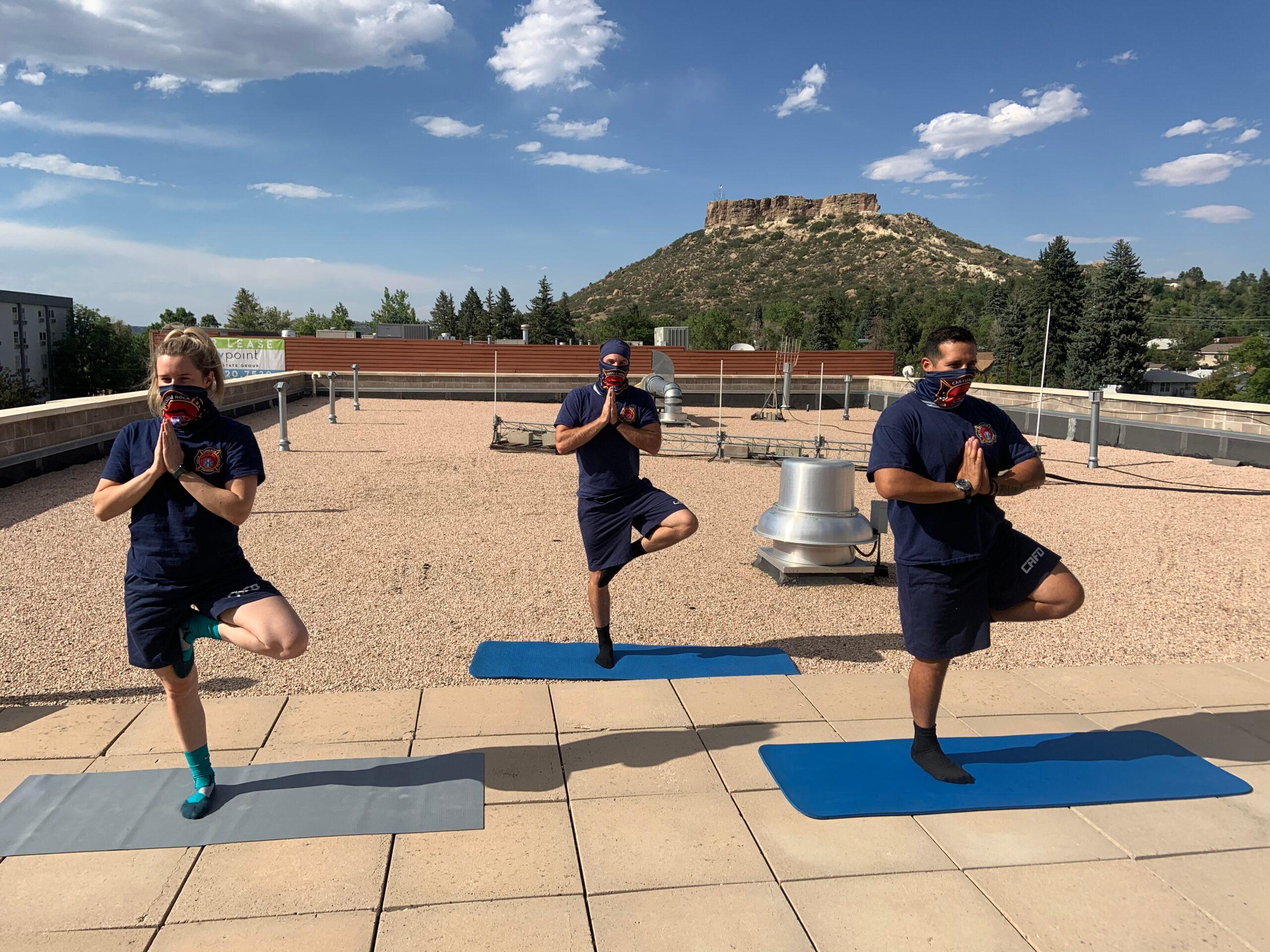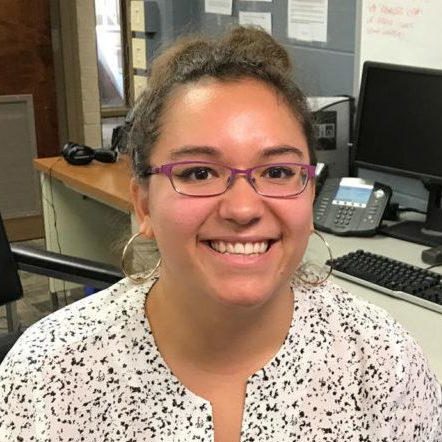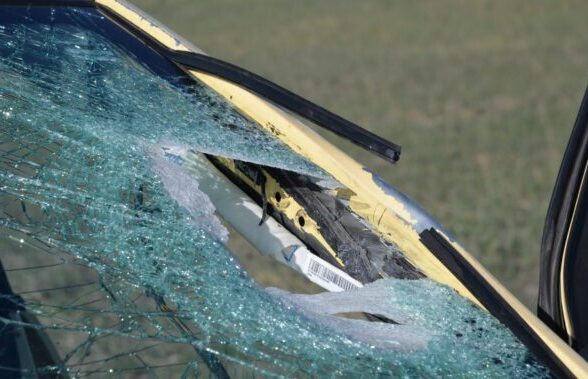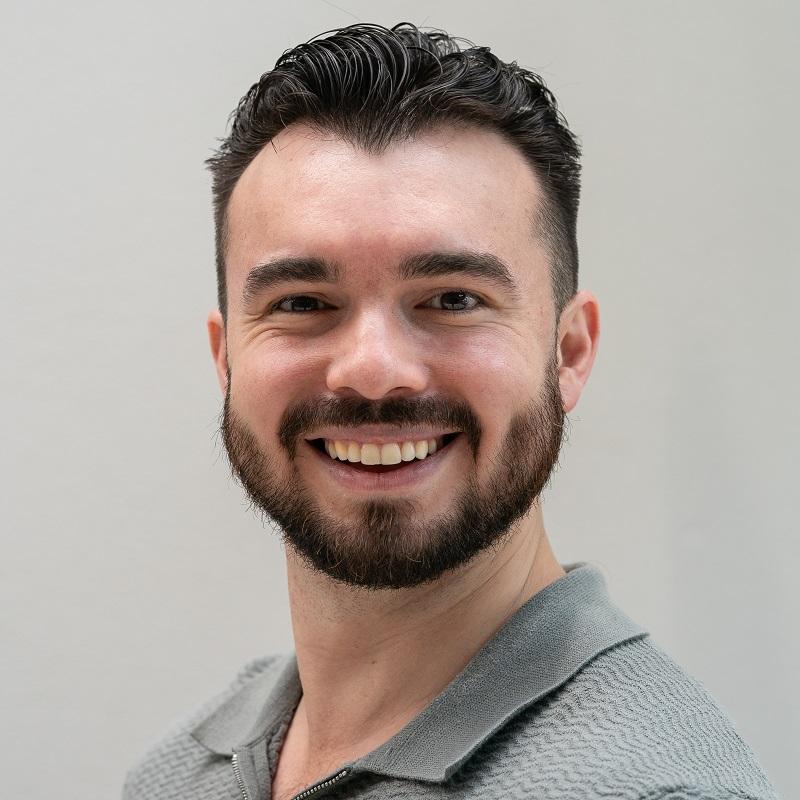
Thomas Godinez vividly remembers his first emergency call. He was volunteering with the fire department in Fort Collins when the station received a call about a boat rescue. He was with a bunch of his college friends.
"We thought we'd volunteer and just hang out at that station and work out together," said Godinez.
He remembers someone had fallen out of a boat in Horsetooth Reservoir. The person wasn't wearing a lifejacket, so he said speed was of the essence.
"I just remember my heart pounding out of my chest," said Godinez. "I was not anticipating what it was going to take, the mental fortitude and the physical fortitude, to do this job back then."
Godinez now works at the Castle Rock Fire Department as an engineer and paramedic. He said he loves the variety of his job, but it's a high stress and high stakes environment.
"It was basically if you can't handle it, you need to get out."
Thomas Godinez with the Castle Rock Fire Department
A 2018 report from the U.S. Fire Administration stated heart attacks and trauma were the biggest cause of firefighter death outside of emergency situations.
Godinez said statistics like this worry him. When he started volunteering as a firefighter, he said he doesn't remember conversations around wellness.
"It was basically if you can't handle it, you need to get out, unfortunately, back in those days," said Godinez. "But I feel like the fire service and emergency medical services have advanced a long way since then, in the right direction."
In the past few years, Godinez and the Castle Rock Fire Department have put an increased focus on the physical and mental health of first responders. They've connected with physical therapists, counselors, and incorporated stress relieving programs, like yoga classes taught by Olivia Mead.
Mead has made it her life's mission to help first responders like Godinez connect with yoga to help improve wellness outcomes. She's been working as a yoga teacher since 2003, and took classes on trauma-informed yoga to help veterans and those in the military. In 2013, she started Yoga for First Responders while living in Los Angeles.
"I was dealing with military who were coming back from deployments, but in public safety, they'll go out for 'combat' every day. They don't know what they're going to see out there," said Mead.
The organization, now based in Castle Rock, has expanded to work with departments in more than 20 states, as well as internationally in Canada, Australia and the Netherlands.
Mead said she and other instructors teach in-person classes, but have moved them online during the ongoing coronavirus pandemic. Yoga for First Responders launched an app in March to connect with clients, wherever they are.
"It's really important for us to make yoga accessible to the community we're trying to reach."
Olivia Mead with Yoga for First Responders
Mead said she wants people to know yoga is for everyone, not just Instagram models on scenic beaches.
"It's really important for us to make yoga accessible to the community we're trying to reach. So we take away anything that's going to even subconsciously bring that image that yoga is not for them. We use English: tactical breathwork, physical drills, neurological reset. We actually don't even say meditation."
Mead said breathing is an essential component of her training curriculum. It helps first responders manage the nervous system stress they experience throughout the day.
"When something difficult happens for a first responder at work, they get back into their patrol car, they go back to the station, and one minute later, they're on another run to another difficult situation. So their system never had the opportunity to regulate after activation," said Mead.
Godinez described the adrenaline rush he and other firefighters experience when receiving an emergency call. He said learning Mead's tactical breathwork techniques helped him stay focused.
"If not, then you're going to have this tunnel vision and you're not going to see what's happening around you," said Godinez. He also said, long-term, "that cortisol dump just leads into high stress, [which] turns into adrenal fatigue, which a lot of firefighters are experiencing through lack of sleep."
Yoga for First Responders, said Mead, aims to give first responders like Godinez proactive tools to use every day on the job.
"We can't take away the stressors from public safety. I always walk in, like, if you think the yoga teacher is here to make your life less stressful, sorry, not the case," said Mead. "What I'm going to teach you is how to be with those stressors so that you know how to regulate afterward."
Other yoga studios across the state are also offering classes that keep in mind the needs of people in high-stress professions. Lara Romero trained with Yoga for First Responders and taught classes at local fire departments in El Paso County. She said her experiences helped shape the work she does at her studio in Colorado Springs called Eighteenth Element Yoga, where many classes are trauma-sensitive.
"My clients were asking for more. The programs are great, they're wonderful, the classes are great and they're wonderful, but there was something else that they needed," said Romero. "So, I became a yoga therapist and so now I see a lot of the firefighters, police officers or veterans as clients."
"If they're doing it actively, then they can start to create resiliency on the job and [have] better job performance."
Lara Romero with Eighteenth Element Yoga
Yoga therapy works in conjunction with other kinds of therapeutic practices, said Romero, like traditional talk therapy. Romero said yoga therapy helps those experiencing trauma and stress stay grounded and get in touch with their bodies.
"We give reinforcement of how strong they are, how they're in control, is your breath there. Can you breathe into it? Can you exhale?" said Romero. "So we're taking that body into the stressor level, we're taking the mind there, and then we're allowing them to fully anchor into their breath, anchor into the space knowing that they have control even though they don't have control externally."
Romero said she has seen yoga therapy work for her clients in roles as first responders.
"If they're doing it actively, then they can start to create resiliency on the job and [have] better job performance," said Romero.
Thomas Godinez, with the Castle Rock Fire Department, said yoga taught him not only how to handle stress on the job, but also be fully present with his family when he gets home.
"I feel surprised how quickly I can recover from a stressful call. In the past, I was in the medic unit, the ambulance, for eight years. It was a hard time, just running the calls, transporting people, taking care of them," said Godinez. "Starting yoga is like, okay, I can do this, I can reset, I can give the same empathy at home as I do at work."
Other first responder organizations, like the Douglas County Sheriff's Department, have launched wellness programs that partner with counselors, physical therapy and Yoga for First Responders. Godinez hopes more organizations in Colorado follow suit to help change health outcomes and provide support.









